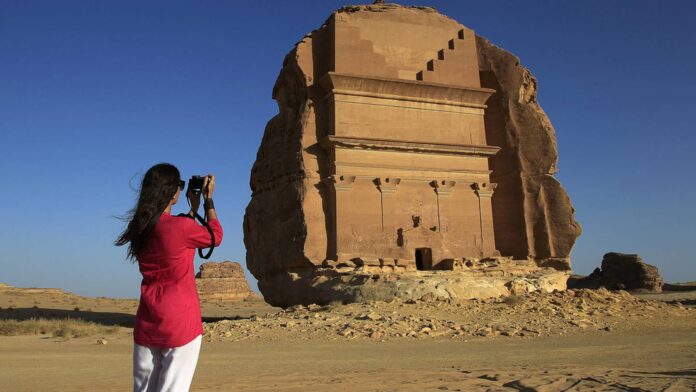The UAE and Saudi Arabia rank among the top three destinations in the Global Muslim Travel Index 2022.
Published annually by CrescentRating and MasterCard, the index ranks countries based on how they cater specifically to Muslim travellers.
Malaysia tops the list, retaining its position from 2019. Saudi Arabia ties for second place alongside Turkey and Indonesia. The kingdom scored highly for having easy access to halal dining options, appropriate airport facilities and availability of prayer venues.
The UAE is only one step behind in third place. The Emirates also ranks as the most accessible destination from the top 30 Muslim outbound markets, a listing that considers air connectivity, land connectivity, visa requirements and transport infrastructure in each destination.
More than 138 countries are ranked in this year’s index, with scores awarded for several factors that can help make Muslim travellers’ journeys worry-free. These are accessibility, communication, environment — including safety records and sustainability — and services available such as hotels, halal dining and unique experiences.
Top destinations in the Global Muslim Travel Index 2022
1. Malaysia
2. Saudi Arabia
2. Indonesia
2. Turkey
3. UAE
4. Qatar
5. Iran
5. Jordan
6. Bahrain
6. Singapore
6. Uzbekistan
Uzbekistan had the greatest improvement in this year’s ranking, moving up seven places since 2019. Jordan also improved its position, climbing three places to rank joint fifth alongside Iran.
The ranking is — somewhat unsurprisingly — dominated by countries that are part of the Saudi Arabia-based 57 member-state Organisation of Islamic Co-operation (OIC).
The top four non-OIC destinations for Muslim travellers are Singapore, Taiwan, the UK and Thailand, in that order. These destinations put in a significant amount of effort to attract and welcome Muslim tourists, despite relatively small Muslim populations.
International Muslim traveller arrivals reached 160 million in 2019 and, as travel returns, those numbers are expected to reach 140 million in 2023, before getting back to pre-pandemic levels in 2024, according to the index. By 2028, it’s expected that the market will account for 230 million arrivals worldwide.
Millennials, Gen Z and women travellers are the most influential within the Muslim travel population with 70 per cent of the estimated two billion Muslims worldwide being under 40 years of age, the report stated. Female travellers represent one of the fastest-growing segments and accounted for 45 per cent of arrivals in 2019, or about 72 million travellers.










